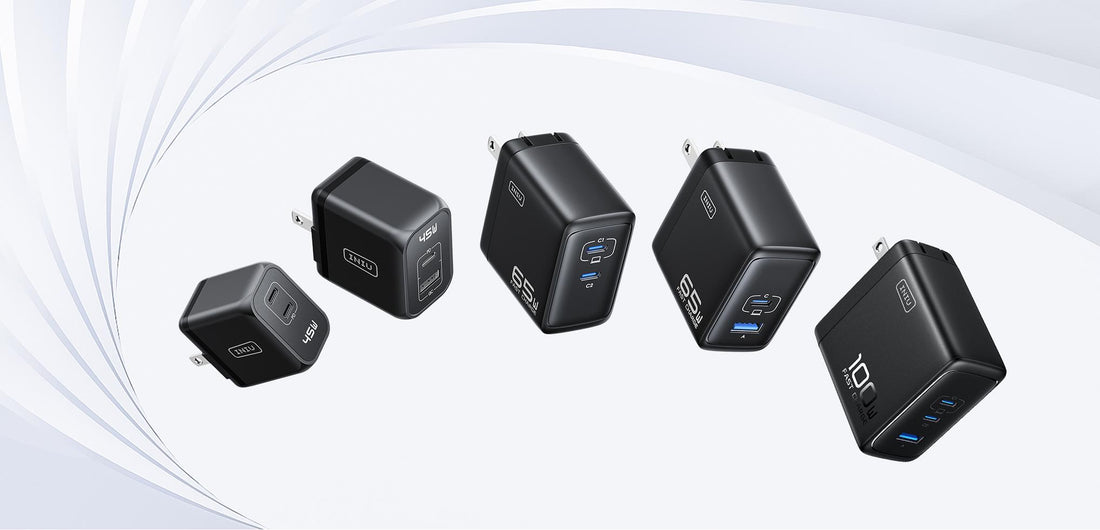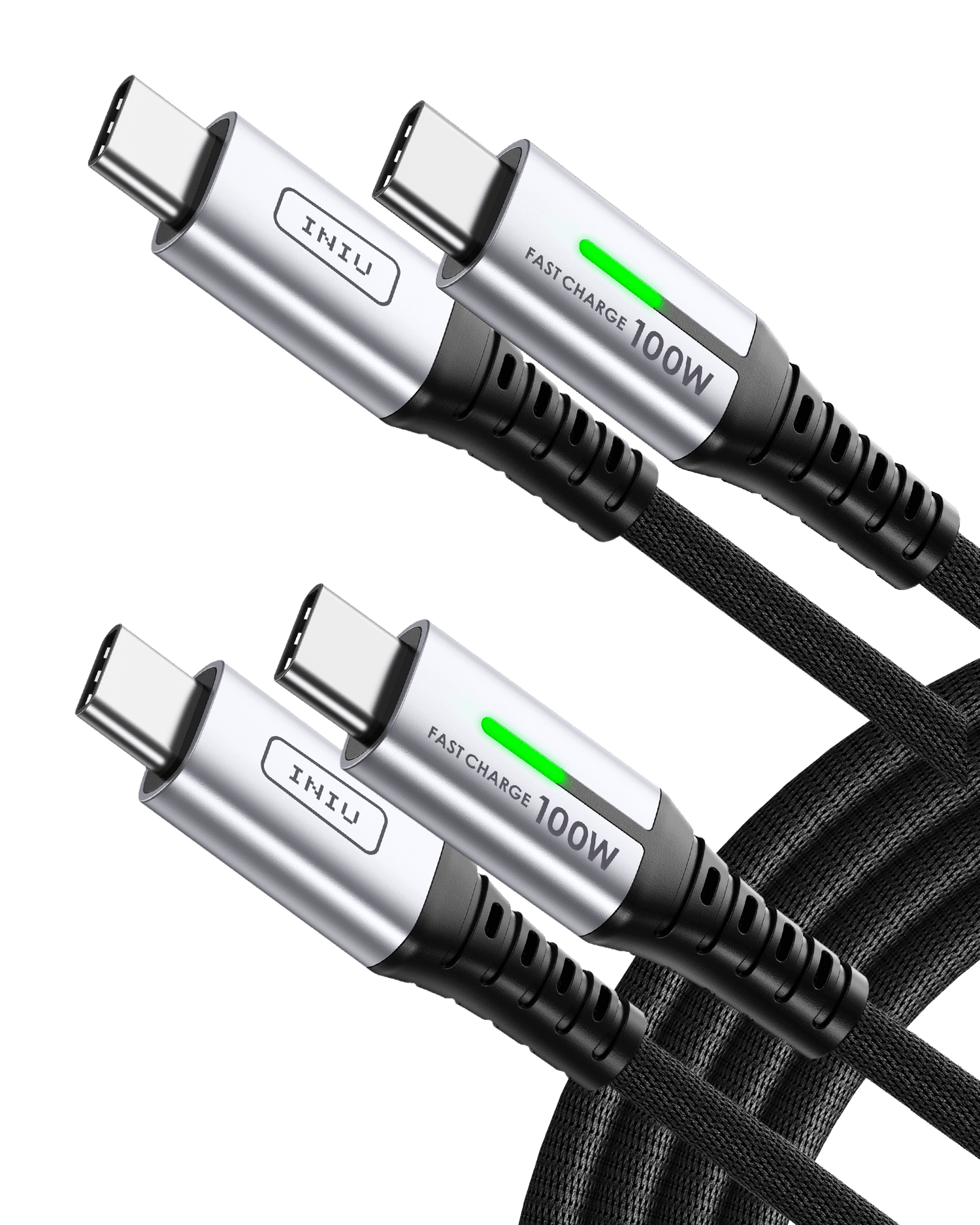As you plug in your phone, electricity flows through the charging cable into the device, causing a mild rise in temperature. Do not worry, chargers are designed with internal heat protection, so everything is fine—at least for a short period, since the charger doesn't get overheated.
That notwithstanding, in case your charger feels too hot when touched or gives you cause for alarm, there could be a hidden defect. Knowing what's typical versus what's concerning, you can get a keener insight into trouble in the making, hence avoiding serious consequences afterwards.
The Dangers of an Overheating Charger: Fire, Device Damage, and More
An overheating charger doesn't just create discomfort. What's worse, it can lead to serious consequences:
- Prolonged overheating can cause chargers to ignite, posing a fire risk that could damage your phone, home, and potentially lead to injury.
- Excessive heat can shorten your phone's battery life or even harm internal components. Over time, this may cause your charging port to become loose or damaged.
- While not common, prolonged exposure to an overheating charger can result in burns if touched. In more severe cases, chargers might release toxic fumes when exposed to extreme temperatures.

6 Common Causes of Charger Overheating
It could mean a number of things when your phone charger overheats. Here, we take the typical 6 as examples.
Cheap or Low-Quality Chargers
One of the most common culprits of overheating is low-quality chargers. Usually, low-quality chargers do not possess advanced heat dissipating mechanisms, so the warmth tends to accumulate. Cheap chargers may also use poor materials that aren't built to last, making them prone to overheating.
If your charger is unusually hot right from the start or gets hotter faster than usual, you are most likely dealing with low-quality parts.
Using the Wrong Charger for Your Device
Using a charger that is not suited for your device can cause overheating.
Always use the charger that came with your device, one recommended by the manufacturer, or a certified charger from a trusted third-party brand.
Charging While Using Your Phone
If you use your phone while it's charging, especially for power-intensive tasks like gaming or streaming, it can lead to excessive heat. This is because the phone is drawing power both from the charger and using energy for the apps you're running.
If your phone is getting hot while charging and you are actively using it, try stopping usage and see if the temperature goes down.
Charging in a Hot Environment
Exposing your charger to hot environments can cause it to overheat. If you're charging in direct sunlight, on a soft surface like a bed or couch, or in a very warm room, the charger may not be able to dissipate heat effectively.
Check if the charger gets excessively hot when plugged into the wall, especially in warmer environments, and try to avoid charging in direct sun or high-temperature areas.
Faulty or Damaged Charging Cable
A damaged or worn-out cable can result in overheating. Frayed cables, bent wires, or broken insulation may cause the flow of electricity to become irregular, leading to increased resistance and heat.
If you notice visible damage to the charging cable, such as fraying or exposed wires, replace it immediately. A damaged cable should not be used.
Overloading the Charger
Using a charger for multiple devices at once, or trying to charge a high-power device with a low-power charger, can cause the charger to overheat. Chargers have a limit to how much power they can provide, and exceeding that limit can result in excessive heat generation.
If you're charging more than one device at a time, check if your charger gets uncomfortably hot. Also, ensure that the charger you are using is rated for the devices you are charging.

What to Do If Your Charger Is Already Overheating?
Act quickly if you notice your charger overheating:
- The first step is to disconnect your charger from the device and the wall socket. Continuing to use an overheating charger can be dangerous.
- Check the charger and cable for visible damage. If any part of the charger feels melted, burned, or otherwise compromised, dispose of it properly.
- Place the charger in a safe area away from heat sources and let it cool down completely before using it again. Do not try to cool it down with water or by blowing on it, as this can cause further damage.
- If the charger continues to overheat after it has cooled down, it's best to replace it with a new, high-quality one designed for your device.
- Ensure that you're not overloading the charger by plugging in too many devices or using an incompatible device with it. Stick to the manufacturer's guidelines for charging.
How to Prevent Your Charger from Getting Hot: A Safety Checklist
It's time to stop overheating before it starts. We've laid out the perfect safety checklist that'll keep your charger cool, your devices safe, and you worry-free.
Go for Quality. Cheap chargers are often the problem. Opt for a certified, high-quality fast charger, like an iPhone fast charger or USB-C charger. They're designed to handle the power and keep things cool. Trust the good stuff!
Let Your Phone Rest. If your phone is playing games, streaming videos, or just working hard, your charger has to keep up. Give it a break! Switch your phone to airplane mode or limit its use while charging to stop that heat from building up.
Pick a Cool Spot. Your charger needs to breathe. Don't charge it in the sun or on soft surfaces like beds or couches. A cool, open space allows air to flow, helping your charger stay cool under pressure.
Check for Damage. Give your charger and cables a regular inspection. Tiny nicks, frays, or bends might not seem like a big deal, but they create resistance that turns into heat. Replace anything that looks worn-out.
Don't Overload the Charger. Keep it simple—one device, one charger. Charging multiple devices at once is like making your charger do overtime. It'll get hot, and it won't thank you for it.
Use the Right Charger. It's tempting to grab any charger, but using the wrong one can lead to problems. Stick with the charger designed for your device. If you're not sure, check the label. Your charger will thank you by staying cool. With various types of phone chargers available, choosing the best one ensures both safety and efficiency.

FAQs About Phone Chargers
Q1: Why does my iPhone charger get hot?
Your iPhone charger might feel warm, especially when it's fast charging. But if it feels like it's been left on the stove, that's a sign something's off. A frayed or damaged cable might be the culprit, as it creates resistance, which leads to more heat. Also, if you're multitasking—watching videos or playing games—while charging, your phone is asking the charger to work harder, which can also lead to a spike in heat. If it's still too warm even when everything looks fine, try swapping out the charger or cable to see if that cools things down.
Q2: How can I charge faster without overheating?
Want speed without the burn? It's all about the charger. Use a quality fast charger, like a certified iPhone fast charger or a premium USB-C charger, and you'll get the speed without the heat. But don't put your phone to work while it's charging—avoid running apps that demand a lot of power. For extra efficiency, switch your phone to airplane mode or turn it off entirely while charging. That way, your charger can get the job done fast and coolly, without stressing out.
Q3: Is it normal for a USB-C charger to get warm?
In fact, it is very normal for a USB-C charger to warm up—particularly when it is charging a device with a high energy demand. Such chargers are designed with heat regulating in mind, so a mild warmth is perfectly normal. However, if your charger feels like it spent hours in the sun, there could be a problem. It could be due to overloading, a low-quality cable, or a faulty charger. Where there is excessive heat, it's a good idea to give it a break. Disconnect the device, inspect the cable and charger for any signs of damage, and think about replacing with a certified, upgraded cable so everything can function properly.
Q4: What should I do if my charger keeps overheating?
If your charger continues to overheat, don't think twice; immediately remove it and give it the time it needs to cool down. Inspect your charger, wires, and plugs carefully—if you find any damage, it's plain as day that you are in need of a new one.




